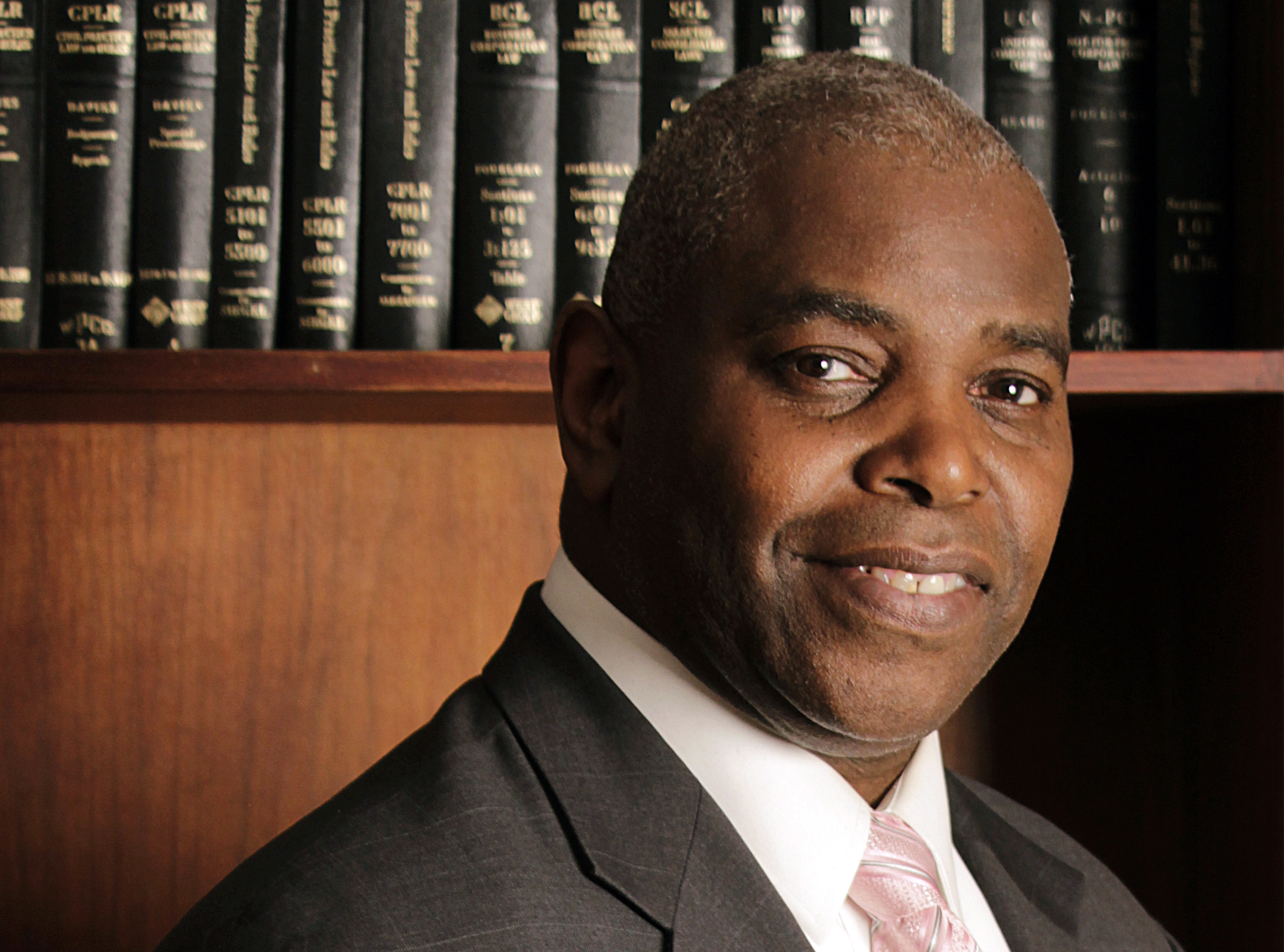Brooklyn judicial candidate Ed King got into law to be in a position to talk back

Ed King said that he never gave much thought to a career as an attorney until he and his friends had a run-in with a police officer one day while he was still in high school. He and two others were sitting in a car in the Bronx, where he grew up, when a plainclothes police officer pulled up next to them.
“I’ll never forget, he pulled up next to us and just barked, ‘You got a problem?’” King said. “I had no idea what he was talking about. I was confused and then he yelled, ‘I’ll solve it for you.’ I was so angry, but I knew if I opened my mouth, I would make things worse. Right then and there, I realized that I needed to be in a position where I could talk back.”
That is a lesson that has always stuck with King and part of the reason why he is running for Civil Court judge in Brooklyn in a countywide primary on June 25. King says that his experiences set him apart from others seeking the position and that he wants to make sure that others have a chance to be heard as well.

Brooklyn Boro
View MoreNew York City’s most populous borough, Brooklyn, is home to nearly 2.6 million residents. If Brooklyn were an independent city it would be the fourth largest city in the United States. While Brooklyn has become the epitome of ‘cool and hip’ in recent years, for those that were born here, raised families here and improved communities over the years, Brooklyn has never been ‘uncool’.